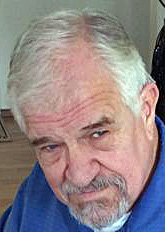
Last month in these pages what I did not do, and I’m sorry I did not, was make any reference to the most important event in July, and the most noteworthy national holiday this country has: Independence Day, the Fourth of July. I regret the oversight, and would like to make amends.
What brought it to my attention was a twelve-year-old photograph of a display of the Traveling Memorial presented by the Veterans of Oregon and titled The Field of Honor. If you came eastbound into Sandy on Highway 26, you couldn’t have missed it: 1,000 American flags massed in an open field on your right, just before the exit to the Forest Service Ranger Station.
I had stopped and talked with the veterans who were staffing the display. I took some pictures and was inspired to go home and erect a 20-foot flagpole, where I proudly raised Old Glory every morning and solemnly took her down every night.
I got to wondering whether our neighbors might consider us “overly patriotic,” and whether that was even a meaningful expression. Samuel Johnson famously said, “Patriotism is the last refuge of scoundrels.” I’m sure he did not mean all who profess patriotism are scoundrels, only that even a scoundrel can sound patriotic, just as the vilest sinner can sound pious if it suits his purposes.Equally famous is Stephen Decatur’s historic—and often misunderstood—toast: “Our country: may she ever be in the right, but our country, right or wrong,” proposed at a banquet in Norfolk, Virginia, to celebrate Decatur’s victory over Algerian “Barbary pirates.”
The words were revived and clarified in a speech by Carl Schurz (1829-1906, German orator, later U.S. general and senator) to the U.S. Senate, Jan. 17, 1872: “Our country right or wrong. When right, to be kept right; when wrong, to be put right.”
1. K. Chesterton wrote, “My country, right or wrong,” is a thing that no patriot would think of saying except in a desperate case. It is like saying, “My mother, drunk or sober.” Such comments always bring up the question: What is true patriotism?
Thomas Paine wrote in The Crisis, during the Revolutionary War, “These are the times that try men’s souls. The summer soldier and the sunshine patriot will, in this crisis, shrink from the service of their country; but he that stands it now, deserves the love and thanks of man and woman.”
He was referring specifically to soldiers who enlisted in the Revolutionary Army during good weather, but went AWOL when it got cold, or it was time to harvest their crops. But “the sunshine patriot” can equally apply to any citizen who opts out when the nation’s economy or foreign policy or political direction don’t precisely match his personal predilections.
If “patriotism” is synonymous with “love of country,” does it refer to geography, basic principles, a particular form of government, a particular administration, or merely symbology? To his credit, presidential candidate Barack Obama said in June of 2008 that dissent does not make one unpatriotic, and that there is nothing smart or sophisticated about a cynical disregard for America’s traditions or principles.
My own journey of political philosophy (not yet finished, I hope) has included
- a family background in a deeply pacifist church
- attendance at Bob Jones University in Greenville, S.C.
- enlistment in the U.S. Navy
- passionate fan of Ayn Rand’s The Fountainhead and Atlas Shrugged
- attendance at UC, Berkeley
- more U.S. Navy
- voting for Barry Goldwater in my first presidential election
- participation in anti-Vietnam War rallies in San Francisco
- one of the charter members of the near-radical People’s Party in California
- inveterate subscriber to William F. Buckley’s National Review
- “A pox on both your houses” to both major political parties
- evangelical charismatic fundamentalist Christian
- heavy leaning toward Libertarian principles
In all these transformations I would have taken issue, and will take issue still, with anyone who challenged my patriotism. That’s why, although I never voted for him, I stood foursquare behind Barack Obama when he said, “I will never question the patriotism of others in this campaign. And I will not stand idly by when I hear others question mine.”
No Comments
Leave a comment Cancel